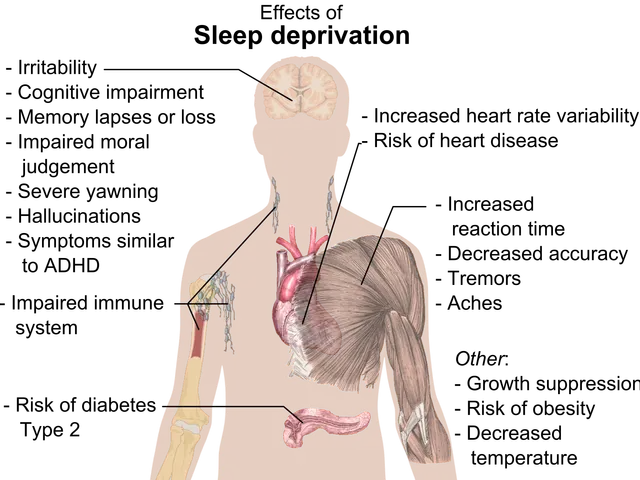What Are Seasonal Allergies?
Allergic Reactions Linked to Specific Seasons Explained
Seasonal allergies, often referred to as hay fever or allergic rhinitis, are a common condition that annoys millions of individuals worldwide. These allergies occur when the immune system overreacts to allergens lurking within the environment during particular periods of the year. The most common triggers? Pollen, you guessed it, from trees, grasses, and weeds!
You know how spring is marked by flower bloom, right? Well, that means blooming trees mean air filled with tree pollen. Summer and fall each have their offenders too. For instance, summer often welcomes grass pollen, while fall packs a punch with ragweed pollen. Keeping an eye on when and where these suspicions allergens multiply can help people manage their allergy symptoms better.
The Origins of Seasonal Allergies
When someone with seasonal allergies meets these irritants, their immune system launches an unnecessary assault, treating the allergens as harmful intruders. The immune system's response releases histamines and other chemicals, leading to the familiar symptoms associated with allergies. Factors like genetics, environmental exposure, and even climate change can affect the severity and incidence of seasonal allergies.
Who Are Susceptible to Seasonal Allergies?
Seasonal allergies can bug anyone, regardless of age or background. Kids and young adults are especially vulnerable, but even those who've sailed through allergy seasons unscathed can develop problems later in life, even if they've never experienced it before. If you suspect you or a loved one is battling seasonal allergies, reach out to a healthcare professional for a proper diagnosis and guidance on symptom management.
Recognizing Seasonal Allergy Symptoms
Spotting seasonal allergy symptoms is key to controlling them effectively. Common symptoms include:
- Runny or Stuffy Nose: Frequently seen with sneezing
- Itchy Eyes, Nose, or Throat: Allergens can cause significant irritation
- Coughing: This might occur due to postnasal drip
- Fatigue: Allergies can siphon energy, particularly if symptoms disrupt sleep
- Headaches: Sinus pressure from congestion can lead to headaches
How Seasonal Allergies Present in Different Age Groups
Seasonal allergies can manifest differently across different age groups:
- In Toddlers: Symptoms can include crankiness, runny noses, and sleep disturbances
- In Babies: Allergies can be tricky to detect in infants, but signs might include irritability, trouble feeding, and excessive fussiness. Always consult your pediatrician if you suspect allergies.
- In Dogs: Pets aren't immune to seasonal allergies, showing symptoms such as itchiness, sneezing, and watery eyes. Consult your veterinarian if you notice these signs in your furry companion.
When to Seek Medical Help
If you face severe symptoms or if over-the-counter medicines don't offer relief, it's time to consult a healthcare professional. They can provide tailor-made advice and treatment options, including prescription medications, allergy testing, and various management strategies.
For more info on dealing with seasonal allergies and finding evidence-based health answers, visit our platform AI, chock-full of helpful resources to navigate your health concerns with ease.
In conclusion, understanding the mysteries of seasonal allergies and identifying their symptoms is the first step towards effective management. With knowledge and proper treatment, you can breeze through seasonal changes without being bogged down by allergies. 🌼🌿
Common Allergy Triggers
Seasonal allergies can have a significant impact on your quality of life. Being aware of common triggers can aid you in managing symptoms more effectively. Here's a run-down of the biggest culprits:
Pollen
Pollen is one of the leading allergens causing seasonal allergies. It's tossed about by trees, grasses, and weeds during select times of the year. The most usual types of pollen found are:
- Tree Pollen: Typically surfaces in the spring, trees like oak, birch, and cedar act as the main offenders.
- Grass Pollen: Generally hangs around in late spring and early summer, with species like Bermuda and Timothy grass wreaking havoc.
- Weed Pollen: Boosts in fall, with ragweed being the most dreaded source.
Mold Spores
Mold spores can also trigger allergies, particularly in damp conditions. They thrive in decaying leaves, compost piles, and washrooms, as well as basements if there's water damage.
Dust Mites
While dust mites aren't strictly seasonal, their presence can intensify year-round allergies. These microscopic pests lurk in bedding, upholstery, and carpets, feeding on skin flakes. Regular cleaning and using allergen-resistant covers can minimize exposure.
Pet Dander
Pet lovers aren't exempt from the discomfort of seasonal allergies. Pet dander, which comprises proteins found in pets' skin flakes, urine, and saliva, can induce allergic reactions. If you're allergic, consider keeping pets out of the bedroom and utilize air purifiers to lessen exposure.
Risk Factors for Seasonal Allergies
Understanding the risk factors associated with seasonal allergies helps you take proactive measures to mitigate symptoms. Key factors to consider include:
Genetics
Genetics play a vital role in determining your susceptibility to seasonal allergies, especially if you have a family history of allergies.
Age
Seasonal allergies are prevalent among children and young adults. Interestingly, some people might outgrow their allergies, while others may discover new sensitivities later in life.
Environmental Factors
Living environment plays a substantial role in allergy risk, including geographical location, climate, and air quality.
Other Allergies
Individuals who already have other allergies, such as food allergies or asthma, face a higher likelihood of developing seasonal allergies due to an over-sensitive immune system.
Exposure to Irritants
Exposure to irritants like tobacco smoke, powerful odors, and pollution can enhance the risk of developing seasonal allergies by inflaming nasal passages and making them vulnerable to allergens.
By understanding the common triggers and risk factors, you can minimize your exposure to allergens and manage seasonal allergies more effectively. 🌼🌿
Diagnosing Seasonal Allergies
Recognizing seasonal allergies requires acknowledging their symptoms and seeking expert assistance. Here's a snapshot of the diagnostic process:
Identifying Symptoms
The first step in diagnosing seasonal allergies is spotting symptoms like:
- Runny nose 🤧
- Stuffy nose
- Sneezing 🤧
- Itchy eyes 👀
- Coughing 😷
- Fatigue 😴
These symptoms usually occur during seasons when specific allergens like pollen are prevalent. Keeping a symptom diary can help pinpoint patterns and allergic triggers.
Consulting a Healthcare Professional
If you believe you have seasonal allergies, your next step is to consult a healthcare professional. They'll review your medical history and perform a physical examination. Be ready to discuss:
- Your symptoms and their duration
- Any family history of allergies
- The environmental factors affecting your symptoms
Allergy Testing
To confirm a diagnosis, your healthcare provider might recommend allergy testing. There are two primary forms of testing:
- Skin Prick Test: Tiny amounts of allergens are introduced to your skin through a tiny prick. The onset of a bump indicates an allergy.
- Blood Test: This test measures the level of specific antibodies (IgE) in your blood that react to allergens.
Both tests are effective, with a healthcare provider deciding which is suitable for your symptoms and medical history.
Seasonal Allergy Treatments
Once diagnosed, finding effective ways to manage seasonal allergies becomes essential:
Over-the-Counter Medications
Many people achieve relief from seasonal allergies by relying on over-the-counter (OTC) medications. Common courses of action include:
- Antihistamines: These reduce sneezing, itching, and runny nose. Popular drugs include cetirizine (Zyrtec) and loratadine (Claritin).
- Decongestants: These relieve nasal congestion, with pseudoephedrine (Sudafed) being a common choice.
- Nasal Corticosteroids: These sprays, like fluticasone (Flonase), reduce inflammation in the nasal passages.
Always consult a healthcare provider prior to starting a new medication to ensure it's appropriate for your situation.
Prescription Medications
If OTC drugs fail to provide relief, your doctor may suggest stronger medications:
- Prescription Antihistamines: These could be more effective for severe symptoms.
- Leukotriene Receptor Antagonists: Medications like montelukast (Singulair) can help manage symptoms.
Allergy Shots (Immunotherapy)
Immunotherapy, or allergy shots, may be recommended for persistent relief. This treatment involves regular injections of allergens over time, helping your body develop a tolerance. This method can take several months to work, but it can provide lasting relief from seasonal allergies.
Natural Remedies
For a more holistic approach, aspiring patients can try the following natural remedies:
- Saline Nasal Rinses: These can flush allergens from your nasal passages.
- Local Honey: Some believe it helps build immunity to local pollen.
- Herbal Supplements: Certain herbs, like butterbur, have shown promise in easing allergy symptoms.
Always consult a healthcare provider before trying any new remedies, especially if you're on other medications.
Preventive Measures
In addition to treatments, follow preventive measures to minimize allergen exposure:
- Stay Indoors: During high pollen counts, limit outdoor activities.
- Keep Windows Closed: Use air conditioning to filter out pollen.
- Shower After Being Outside: Washing off pollen can reduce exposure.
By understanding how to diagnose and treat seasonal allergies, you can take proactive steps to manage your symptoms and improve your quality of life. 🌼
Home Remedies for Seasonal Allergies
Home remedies can provide relief from seasonal allergies, alleviating symptoms without a prescription:
1. Saline Nasal Rinse
A saline nasal rinse can help clear your nasal passages of allergens. Mixing salt and warm water in a neti pot or nasal spray bottle and using them to cleanse your sinuses can ease congestion and improve breathing.
2. Local Honey
Some insist that eating local honey helps build immunity to local pollen, with the theory being that ingesting small amounts of pollen can minimize allergic reactions over time. Adding honey to your tea or yogurt can provide a sweet touch.
3. Herbal Teas
Certain herbal teas, like peppermint, ginger, and chamomile, can help alleviate allergy symptoms with their natural anti-inflammatory properties. Plus, they help keep you hydrated!
4. Apple Cider Vinegar
Apple cider vinegar is another home remedy that may help reduce the effects of seasonal allergies. Mix one to two tablespoons of apple cider vinegar with warm water and drink the mixture for temporary relief.
5. Essential Oils
Essential oils like eucalyptus, lavender, and tea tree oil have been used to manage allergies. Diffusing these oils in your home or incorporating them into a warm bath can help soothe your nasal passages. Just ensure you're not allergic to the oils themselves before using them.
6. Quercetin-Rich Foods
Quercetin is a natural antihistamine found in foods like onions, apples, and berries. Incorporating these foods into your diet may help alleviate allergy symptoms.
7. Probiotics
Maintaining a healthy gut can improve your immune system's performance, potentially alleviating allergy symptoms. Probiotics, found in yogurt and fermented foods, can help balance gut bacteria, possibly reducing the severity of allergic reactions.
Preventing Seasonal Allergies
Minimizing allergen exposure is crucial in managing seasonal allergies effectively:
1. Track Pollen Counts
Stay updated on local pollen counts by checking weather apps or websites. On days with high pollen levels, avoid outdoor activities, especially in the morning when pollen counts peak.
2. Keep Windows Closed
If it's allergy season, shut your windows to keep pollen outside. Use air conditioning instead, and consider purchasing an air purifier with a HEPA filter to eliminate additional allergens from your indoor environment.
3. Shower After Outdoor Activities
Once you've spent time outside, take a shower and change your clothing to wash away accumulated pollen. Walking around with pollen on your skin and clothes increases your likelihood of experiencing allergic symptoms.
4. Use Allergen-Proof Bedding
Invest in allergen-resistant covers for your pillows and mattresses to safeguard against dust mites and other allergens lurking in your bedding.
5. Regular Cleaning
Keep your living space clean by regularly dusting and vacuuming, especially areas like floors, furniture, and drapes where allergens can accumulate. Don't forget to wash your bedding and curtains regularly!
6. Reduce Outdoor Activities on Windy Days
Avoid exercising outdoors or participating in other activities during windy days as it amplifies the spread of pollen. Exercise or engage in outdoor activities on days with calm winds or indoors.
7. Consult with a Healthcare Professional
For severe or recurring allergy symptoms, consult a healthcare professional for personalized advice on managing symptoms and preventing future reactions.
By implementing a combination of home remedies and preventive measures, you can alleviate the discomfort of seasonal allergies and enjoy all seasons without interruption. 🌼
FAQs about Seasonal Allergies
What is the difference between seasonal allergies and hay fever?
Hay fever and seasonal allergies refer to the same condition. They are both caused by an allergic reaction to airborne allergens such as pollen, mold, and dust mites, which tend to be more prevalent during certain seasons.
Where does hay fever come from?
Hay fever, also known as allergic rhinitis, is an allergic reaction to airborne allergens such as pollen, mold, and dust mites. It occurs when the immune system's response to these allergens is overly aggressive, leading to symptoms like sneezing, congestion, and itchy eyes.
What are common allergy triggers in spring?
common allergy triggers in the spring include tree pollen, grass pollen, and outdoor mold spores.
Are there allergy-resistant plants I can plant in my garden?
Indeed! Certain plants are considered less pollen-producing, making them a great choice for allergy sufferers. Examples include petunias, daisies, mums, and impatiens. To make gardening even more allergy-friendly, keep your garden clean by regularly trimming plants and removing dead foliage.
Is it possible to develop allergies later in life?
Yes, it's possible to develop allergies later in life. Factors such as environmental exposure, stress, and aging can contribute to the onset of allergies. Consult a healthcare professional if you suspect you have developed allergies.
Can allergies trigger asthma?
Yes, allergies can trigger asthma symptoms, such as coughing, wheezing, and shortness of breath. Allergens inhaled into the airways can irritate and inflame the airways, aggravating asthma symptoms.
How can I avoid allergens when dining at restaurants?
Communicate with the restaurant staff about your allergies, explaining any dietary restrictions due to allergies. Most restaurants will make an effort to accommodate your needs by suggesting allergy-friendly options or preparing food separately to minimize cross-contamination.
What are some common allergy triggers in the fall?
Ragweed pollen, mold spores, and dust mites are common allergy triggers in the fall. Keep an eye on local allergy alerts, which will help you track the levels of these allergens and take preventive measures.
How can I prevent my dog from developing seasonal allergies?
Maintaining good grooming, keeping pets off dirt or lawns during peak pollen times, and managing their environment can help minimize the development of seasonal allergies. If your pet is experiencing symptoms, consult a veterinarian for suggestions on allergy relief options.
- Mental-health awareness should be included in the discussions of health and wellness, as it is crucial for overall well-being.
- Nutrition plays a vital role in managing conditions such as chronic diseases, eye-health, skin-care, and overall fitness and exercise.
- Neurological-disorders, like multiple sclerosis or Parkinson's disease, can impact one's daily life and require professional medical-attention.
- Incorporating sports and sports-analysis into a fitness routine can help improve overall physical well-being while being mindful of nutrition intake for optimal performance.
- Skin-care goes beyond aesthetics; it plays a role in health management, as proper skin care can prevent infections and chronic conditions like eczema or psoriasis.
- A well-rounded health and wellness plan should also include mental-health exercises like mindfulness or therapy to ensure balanced well-being.
- Ideally, a holistic approach to health and wellness should consider various factors, including physical activity, diet, mental health, skin care, and disease management, to ensure a healthy lifestyle.








